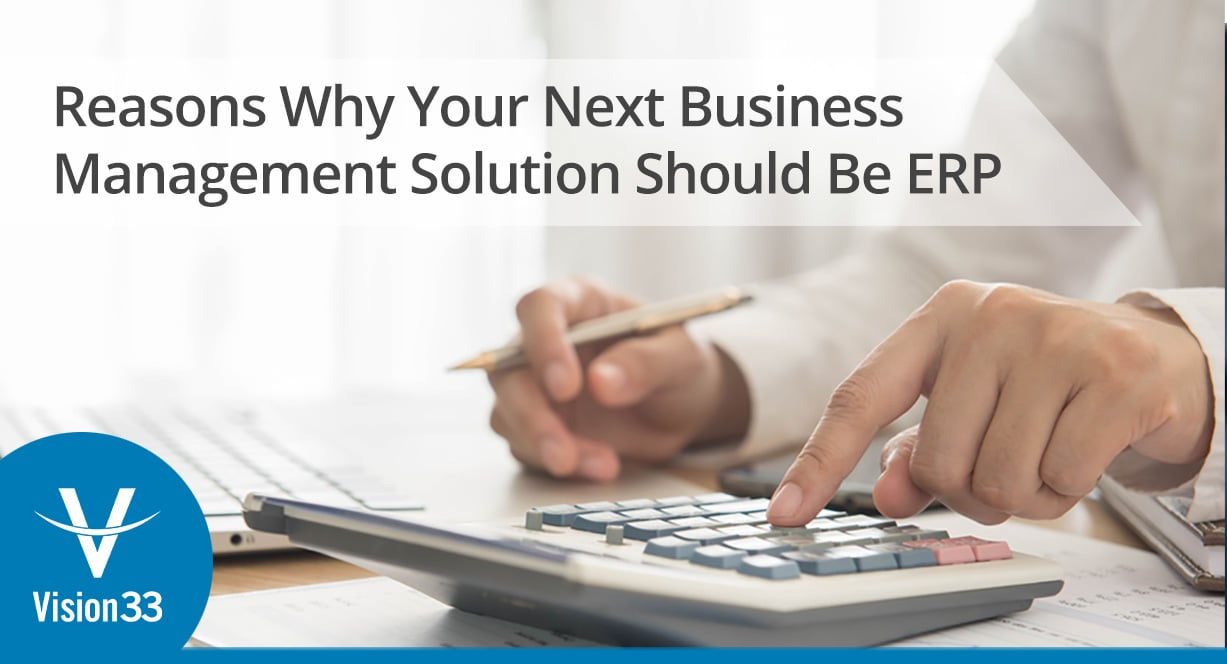One of the most common questions that comes up for growing SMEs is whether adopting an enterprise resource planning (ERP) solution will result in a positive return on investment (ROI). Mint Jutras' latest study demonstrates why ERP should be in the running for your next business management solution. Read the article.

For all the data and enterprises technology studies conducted on the benefits of integrated business management solution, one of the most common questions that comes up is whether adopting an enterprise resource planning (ERP) solution will result in a return on investment (ROI). To provide some perspective on the topic, Vision33 invited Cindy Jutras, enterprise researcher and president of Mint Jutras, an independent research and advisory firm that specialises in analysing the business impact of enterprise applications, to answer the question.
Expected vs. Realised ROI
During the recent webinar, Cindy provided some perspective on the topic: “This is the software that is running your business, so there’s an element of blood, sweat, and tears associated with the implementation of ERP – if [small to midsized enterprises] are not going to get an ROI from it, why bother?” Over the years, enterprise technology studies have shown time and time again that the projected ROI of an SME exceeds what is achieved. 27% of businesses projected an ROI within a year of implementing ERP, however, three quarters of these SMEs go on to see the full benefit of an ERP solution within the first two to three years – and beyond – following the ERP implementation phase.
Realised Benefits
It is an important distinction to make that the greatest opportunity businesses have at obtaining a return on investment and future costs savings is by choosing an ERP solution in the world-class category. Jutras defines the world-class category using a composite metric which includes actual measured results experience by an SME following the implementation of the ERP solution, progress made in achieving company-specific goals, and current performance in selected KPIs.
Based on their research, Jutras’ 2018 enterprise study revealed a percentage of SMEs that enjoy a higher margin of benefits realised following ERP implementation versus the percentage of anticipated benefits. Everything from IT security, remote access for distributed workforce, lower total cost of ownership, reduced risk, innovation, reduced upgrade cost achieved a higher than anticipated benefit.
Lower Business Costs Following the Implementation of ERP.
Although ERP implementation represents an important investment for an SME that will take time, resources and the right ERP partner to execute, it is also important to recognise the what stands to be gained post-implementation. In addition to the many benefits outlined above, SMEs can expect significant cost savings to result from transitioning from a small business accounting software package to ERP. Even the average cost savings of a typical SME that has adopted a world-class ERP solution justify the initial investment of resources and time of a business.
The only caution Jutras makes is that in deciding on the timing of ERP solution selection and implementation, the longer you wait the least optimal timing is for ERP if you’re business is under distress because of its existing solutions limitations. A better strategy is to plan for the transition to world-class ERP to ensure that an SME maximises the benefit in a shorter timeframe.
Watch the Vision33 Guest Speaker Webinar Series video featuring Cindy Jutras to hear more interesting findings from her research and why SMEs should choose an ERP solution for their next business management solution.


